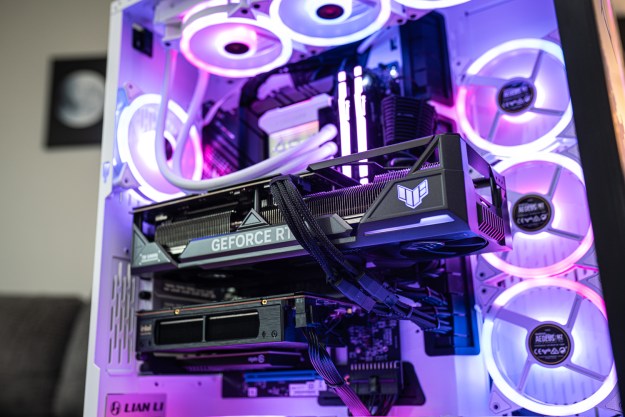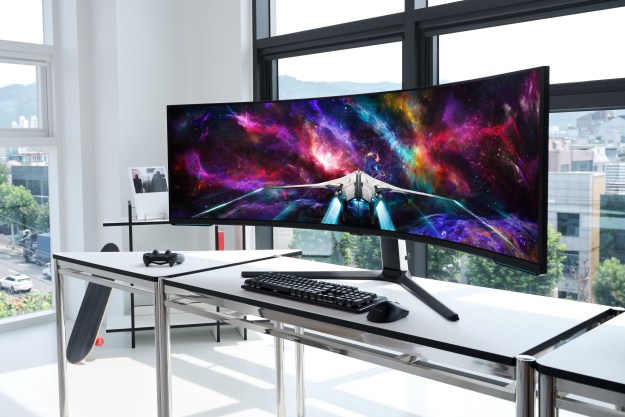
Jimmy, Joan, Kartika. By now, they’re starting to become household names, and they all want the same thing: your money. Wikipedia is once again pleading for user donations with banners across the top of its site with memos from purported authors. And while the messages are heartfelt and even manage pull at a few notions about collective good, there could be a better way to increase profits. It’s called advertising.
But founder Jimmy Wales has considered and rejected this idea, saying, “Commerce is fine. Advertising is not evil. But it doesn’t belong here. Not in Wikipedia.” Which would all be well and good if Wales himself hadn’t had his own finances called into question. Two years ago, it was reported that he was accepting money in exchange for Wikipedia page edits, which he firmly denied.
Aside to the questionable scandal, there’s also that fact that these public pleas don’t appear to be working. Wales attempted the same request for donations last year, and failed to meet the company’s goal. However, Google stepped in with a $2 million gift to the foundation. What also could be causing a bit of consumer skepticism is some background about Wikipedia’s fundraising organization. Charity Navigator gives Wikipedia a commendable rating, but its fundraising efficiency gets a lowly one out of four stars. And despite its protests of volunteerism, there is at least one person on the payroll: Executive Director of its fundraising department Sue Gardner, who pulls down $168,700 a year (as of 2009).
Part of Wales’ message is that if users don’t want ads, they need to donate. And from the looks of it, they just might want ads. The foundation is approximately $7 million short of its 2010 fundraising goal, and Wikipedia analysts are saying the site would be better off with a marketing scheme. Wikiexperts founder Alex Konanykhin argues that using ads could solve its financial issues without affecting its neutrality.
Konanykhin also believes that Wikipedia needs to generate revenue in order to pay for some written content. Subject-matter experts often have their articles revised and rewritten by the site’s other volunteers, leaving many feeling the time invested in contributing to the site is a waste. “We believe that boycotting fundraising efforts of Wikipedia might compel it to raise billions via advertising and develop content of significantly better quality. Qualified contributors may and shall be compensated for their time,” Konanykhin says.
Wikiexperts formerly supported Wikipedia’s fundraising efforts, but the organization (which assists businesses in composing their pages for the site) says that the relationship Wikipedia and its volunteers have cultivated is hostile to outside sources, limiting the depth of information it can provide. It’s common knowledge that Wikipedia shouldn’t be a trusted as a verifiable source, but seeing how widely used it is, Konanykhin thinks it needs to be.
UPDATE:
Wikipedia co-founder Jimmy Wales contacted us in response to the article, obviously in disagreement about several issues we reported. You can read his e-mail below.
There is an important set of errors in Molly McHugh’s article “Analysts advise Wikipedia to stop asking for donations.”
1. Last year’s fundraiser was a complete and total success, and Google’s gift was *on top of* the fundraiser. We met our goals handily without Google’s help, but very much appreciated their gift as well.
2. It is absolute fabrication on the part of Molly McHugh’s to say that I was accused of accepting money in exchange for Wikipedia page edits. No one has ever suggested such a thing. There was an absolutely false claim that I asked for a donation to the Foundation in exchange for edits. I can only say this in the strongest possible terms: that claim is absolutely and completely false from top to bottom, and no evidence of it has ever been put forward by anyone. It is shocking and offensive to me to not only hear this false claim repeated, but also made worse by having it claimed that *I* accepted money.
3. It should be emphasized in any discussion of Wikipedia financials that I work tirelessly for Wikipedia and do not accept a salary, nor even money for expenses incurred. Even when I travel for Wikimedia Foundation board meetings, I pay for my own accommodations and travel.
In regards to last year’s fundraiser, Wales is correct. Wikipedia did raise a reported $6.2 million dollars by January of 2009, but at the same time it’s important to note that this money would only see the organization through the end of its fiscal year, June 2009. Wikipedia also has received large contributions from established institutions, such as Google and the Stanton Foundation, which have inarguably benefitted the organization’s financial situation, and if anything, given it a stronger reputation as a source.
As far as Wales being formerly accused of accepting money for Wikipedia entry edits, the fact remains that he was. We have never accused Wales of actually being guilty of this crime, instead consistently acknowledging he has always denied these claims.
Wales does often contend he volunteers his efforts for Wikipedia and goes unpaid, and we have never reported anything to the contrary.


